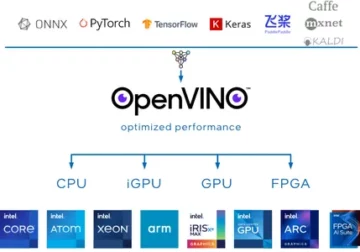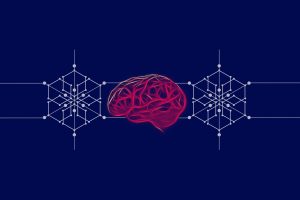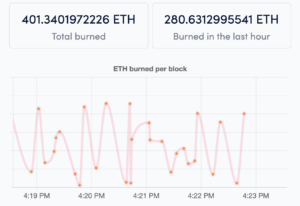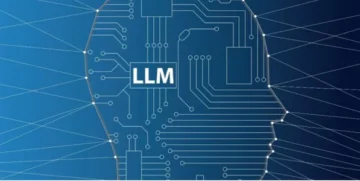Introduction
Whether you are a cybernaut or not, the chances are that you have heard the ‘jobs AI can’t replace’’ debate. About 85 million jobs globally are grappling with the risk of becoming obsolete at the hands of automation by 2025. Artificial intelligence is making such headlines by serving a new invention every now and then, which — on a larger ground — could do most of the human work. A few sprints back into the past, we came across ChatGPT, daunting writers and content marketers. Sports industries are full-fledged, using AI to automate diet planning, prevent player injuries, and whatnot! Customer services are already setting up the chatbot-doing-it-easy environment. This scenario does make us wonder if there are actually any jobs that can’t be replaced by AI.
But going by what we discussed above, do you think that writers, dieticians, or customer service agents need to resort to another career path? Well, you can decide this for yourself once we reach the end of this article. For now, let’s talk about the jobs AI can’t replace.
But before that, we’d like to present you with an amazing opportunity to broaden your horizons and take your skills to the next level. Calling all data science and AI enthusiasts to join us at the highly anticipated DataHack Summit 2023. It’s all happening from 2nd to 5th August at the prestigious NIMHANS Convention Centre in Bangalore. This event is going to be a blast, filled with hands-on learning, invaluable industry insights, and unbeatable networking opportunities. Check out DataHack Summit 2023 Now!
Table of contents
Impact of AI on the Job Market
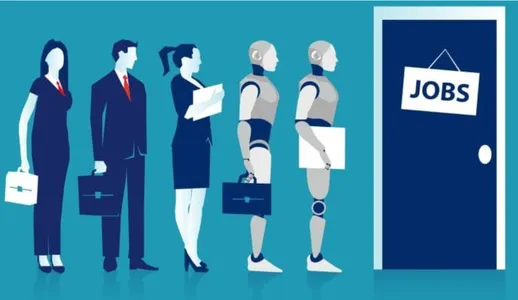
The AI-driven change in the job market has become a significant topic of discussion due to many trends and buzz. While the technology has the potential to automate certain tasks and transform industries, it still poses a complex overall effect on employment, and AI cannot replace several jobs. But before we go there, here’s everything that has been happening ever since technology caught the attention of the world:
Automation is Replacing Jobs
One of the concerns surrounding AI is the potential for job displacement, as automation replaces certain tasks previously performed by humans. According to research, AI could make about 400 million to 800 million people lose their jobs or look for another career path by 2030. AI technologies, such as robotics and machine learning, can automate routine and repetitive tasks in various sectors, leading to a reduction in the demand for certain types of jobs. Industries like manufacturing, customer service, transportation, and data entry are among those most susceptible to automation-driven job displacement.
New Roles are Being Created

While AI may eliminate some jobs, it also has the potential to create new job opportunities and augment existing roles. As AI technology advances, new roles will emerge to develop, implement, and maintain AI systems. Additionally, there will be a growing demand for professionals skilled in areas such as data analysis, machine learning, AI ethics, and algorithm design. Organizations will require individuals to oversee AI systems, ensure ethical considerations, and make strategic decisions based on AI insights.
Upskilling is As Important As Developing Skills
The widespread adoption of artificial intelligence is likely to result in a shift in the skills demanded by the job market. Certain low-skilled and repetitive tasks may be automated, leading to a greater emphasis on skills that complement AI technologies. This includes skills such as critical thinking, creativity, problem-solving, adaptability, emotional intelligence, and complex decision-making. Upskilling initiatives will be crucial for employees to acquire the necessary competencies to adapt to the changing job market.
Socio-Economic Considerations Are in the Spotlight
The impact of AI on the job market has broader socio-economic implications. It can contribute to income inequality if the benefits of AI are not equitably distributed. Certain communities or individuals with limited access to education or resources may face challenges in adapting to the changing job market. Policies and initiatives that address skill gaps, support lifelong learning, and promote inclusive access to AI technologies can help mitigate potential inequalities.
Overview of Jobs That AI Can’t Replace
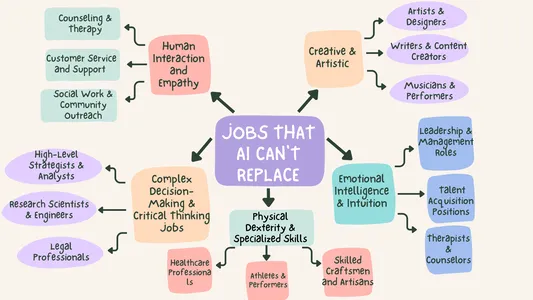
AI has the potential to transform entire industries, leading to the emergence of new business models and opportunities. Industries such as healthcare, finance, retail, and agriculture can benefit from AI-driven innovations, creating new jobs and improving efficiency. For example, AI can support medical professionals in diagnosis and treatment decisions, enhance financial services through personalized recommendations, enable e-commerce platforms to provide targeted marketing and optimize agricultural practices for increased productivity.
Jobs Requiring Human Interaction and Empathy
We can talk to Alexa, check up on a data science course, and take up an AI job; We have, and we will continue to become acclimated to, an AI kind of lifestyle. But is there a replacement for roles that involve support, service, or comfort through a subjective experience or conversation? Here are such jobs that AI can’t replace:
Roles in Counseling and Therapy
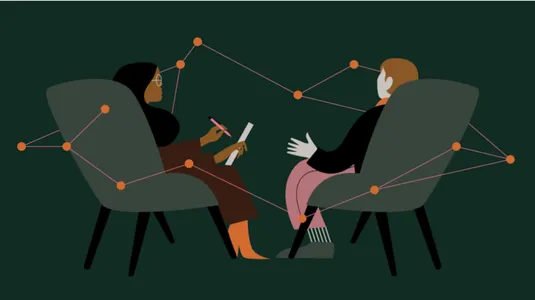
The counseling and therapy field has jobs that can’t be replaced by AI, for good reasons. Roles that involve providing mental health support, counseling, and therapy require empathy, active listening, and understanding of human emotions. The ability to establish a trusting relationship, adapt to individual needs, and offer personalized guidance makes these professions highly dependent on human interaction.
Customer Service and Support Positions

Customer service representatives and support staff handle inquiries, complaints, and problem-solving for customers. Their role involves empathetic communication, active listening, and understanding nuanced customer needs. Human agents can adapt to unique situations and offer emotional support, which enhances customer satisfaction.
Social Work and Community Outreach Roles
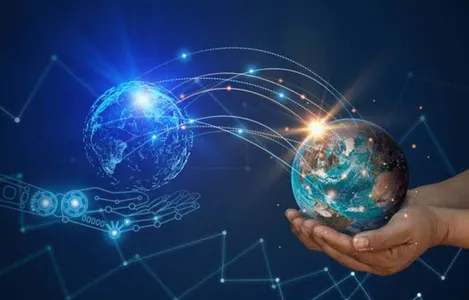
Social workers assist individuals and communities facing various challenges, such as poverty, abuse, or mental health issues. They provide emotional support, assess needs, and connect people with necessary resources. Social work involves deep empathy, cultural sensitivity, and the ability to navigate complex social dynamics, which AI struggles to replicate.
Creative and Artistic Professions
Art has been a porter of passion and pleasure. With time, it became a source of income, too. And in no time, there are several AI tools generating content, composing music, and creating images. However, art is a child of one’s imagination and experience, something which presents an outlook on different aspects of life. Here are creating jobs that can’t be replaced by AI:
Artists and Designers
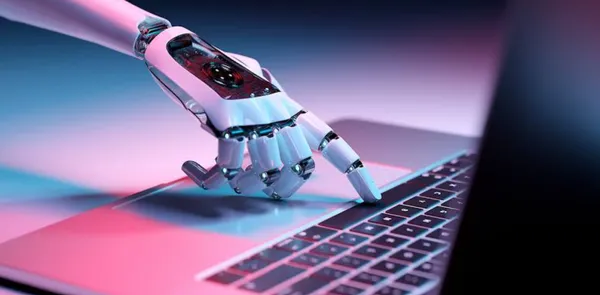
Artistic expression through painting, designing, drawing, and other mediums requires a profound connection between the artist’s mind and a blank canvas. The human touch, the imperfections, countless thoughts, intricacies, and the unique perspective conveyed in each stroke cannot be replicated by AI. Art captures the essence of human experiences, imagination, and cultural identity, making it a deeply personal and irreplaceable form of expression.
Have you come across incredible innovations like MidJourney and Stable Diffusion in your professional or personal work? These groundbreaking technologies have taken the world by storm and have become an integral part of our lives. If you’re curious about how they work, our workshop- Exploring Generative AI with Diffusion Models at the DataHack Summit 2023, is a perfect fit for you, where we’ll unravel the mysteries and dive into their fascinating world! Check out more details here.
Writers and Content Creators
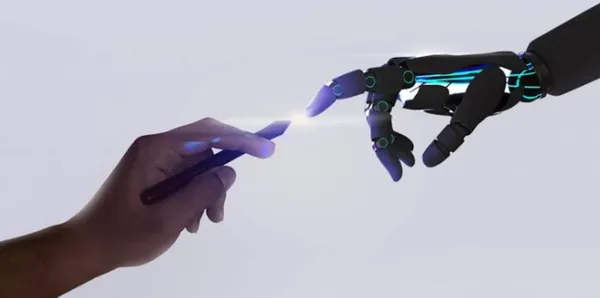
Content holds immense power and complexity. While AI can generate text based on patterns and data, it lacks the human touch and deep understanding of emotions, nuances, and cultural contexts that make writing truly impactful. Whether it’s crafting a compelling novel, thought-provoking journalism, or engaging copywriting, the art of storytelling and the ability to connect with readers on an emotional level remains a distinctively human trait.
Musicians and Performers
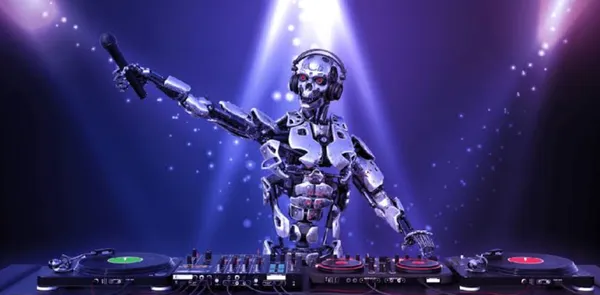
Music and other sorts of performing arts transcend boundaries and converse with the depths of our psyches. While AI can compose melodies and generate music based on algorithms, it struggles to replicate the emotional depth and artistic interpretation brought forth by human musicians. The ability to infuse personal experiences, emotions, and improvisation into performances, as well as the intuitive understanding of rhythm, dynamics, and expression, keeps human musicians at the heart of musical creation.
Complex Decision-Making and Critical Thinking Jobs
Business decisions are no joke. They require thorough analysis, understanding, and critical thinking. While AI can help analyze data, it cannot contest the way humans approach the decision-making process. Here are such jobs that AI can never replace:
High-Level Strategists and Analysts
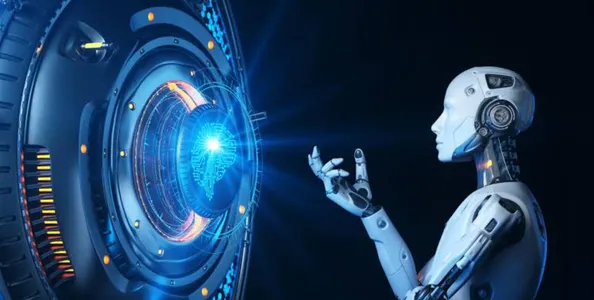
AI has the prowess to process and analyze large volumes of data. It can also suggest ideas and give something to seek inspiration from. However, it still requires human expertise to interpret the results accurately. Analysts and scientists are jobs that AI can never replace as they require domain knowledge and critical thinking skills to derive insights and identify patterns. After a thorough understanding has been conducted, humans can make informed decisions based on the information as per the changing demands of the market, which AI is not capable of doing.
Research Scientists and Engineers
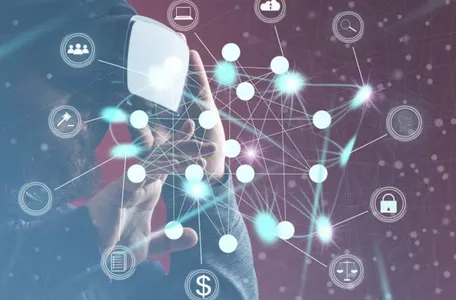
Scientists experiment. They analyze data and draw conclusions based on their knowledge and experience. While AI can help them with data processing and analysis, the creativity, intuition, and scientific judgment that are necessary for ground-breaking discoveries are uniquely human.
Legal Professionals and Judges
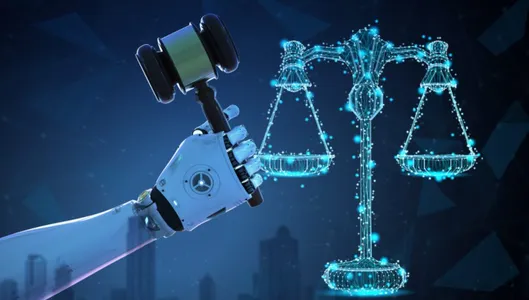
Lawyers, judges, and ethicists deal with complex legal and ethical frameworks, interpretation of laws, and consideration of moral dilemmas. These legal professions have jobs that can’t be replaced by AI as they require nuanced judgment, empathy, and the ability to weigh multiple factors, which AI currently lacks.
Jobs Requiring Emotional Intelligence and Intuition
Here are the jobs requiring emotional intelligence that AI can’t replace:
Leadership and Management Roles
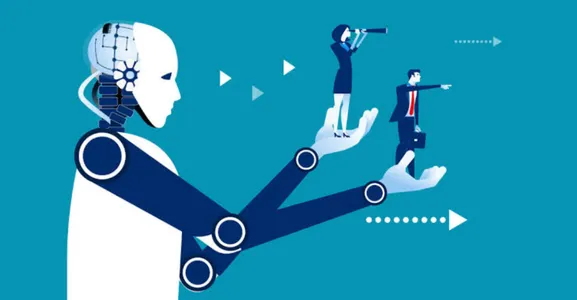
Managers and leaders in any organization assess market trends, competitive landscapes, and long-term business strategies. Their decisions involve weighing multiple factors, considering risks, and making choices that align with the organization’s goals and values. It calls for emotional intelligence, striking a perfect balance between unbiased decisions and the greater good of the company, which by all means is a role that cannot be left alone to AI.
Human Resources and Talent Acquisition Positions
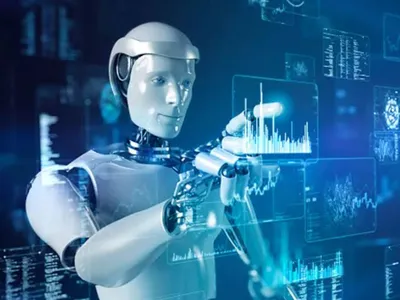
Human resources are one of the jobs that AI can’t replace. HR professionals handle various aspects of employee management, including recruitment, training, conflict resolution, and employee well-being. Their role involves empathy, understanding human dynamics, and making subjective judgments based on individual circumstances.
Therapists and Counselors
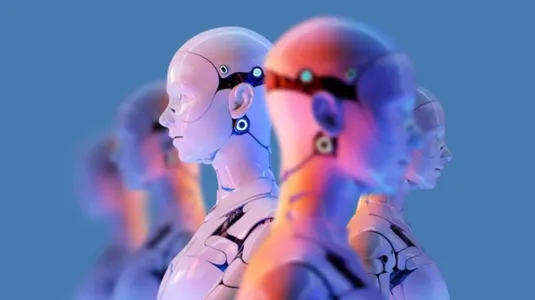
Therapists and counselors are about emotional intelligence, above all, and thus make jobs that can’t be replaced by AI. The professionals work closely with individuals to address their emotional well-being. The ability to empathize, understand complex emotions, and establish trust with clients is essential in providing effective therapy, making it challenging for AI to replace human therapists.
Jobs with Physical Dexterity and Specialized Skills
From pottery to knitting, surgery to coaches, some practices are a matter of physical dexterity and skills that are typically not taught. Here are such jobs that AI can’t replace when it comes to the skills requiring physical or specialized skills:
Skilled Craftsmen and Artisans
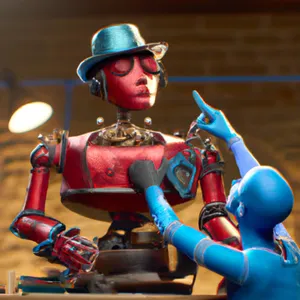
Professions such as woodworking, pottery, glassblowing, and jewelry making involve intricate hand movements and a keen sense of touch. The tactile nature of these crafts, along with the need for creativity and attention to detail, makes them highly reliant on human dexterity. And thus, these are jobs that AI can’t replace.
Surgeons and Healthcare Professionals

The impact of AI in healthcare is proliferating for good. However, as much as it helps assist in diagnosing certain conditions, medical professionals make complex decisions that involve empathy, patient interaction, and ethical considerations. Treating patients requires a holistic approach that combines medical knowledge with personal judgment. Thus, the medical industry still has a safe spot for jobs that can’t be replaced by AI.
Athletes and Performers
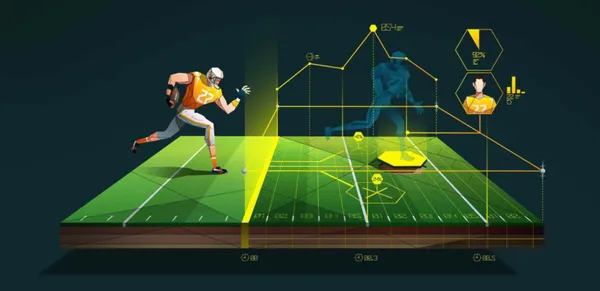
Just like healthcare, the craze of AI in sports is booming. But athletics is one of the jobs AI can’t replace. Sports that demand physical agility, coordination, and precise movements, such as gymnastics, figure skating, and professional dance, require a level of skill and athleticism that goes beyond what AI can currently achieve.
Conclusion
With pink slips happening and the news flashes of AI threatening the job landscape, it is fair to ruminate on the employment aspect of the future. There are jobs that AI can’t replace, and then there are jobs that are budding out of this technology. But It is important to note that the impact on the job market is uncertain and depends on various factors such as the pace of AI adoption, technological advancements, societal responses, and policy interventions.
This presents an opportunity to upskill or find a new career path in the field of AI. If this sounds like you, then enroll yourself in a certification course like AI & ML BlackBelt Plus program, which prepares tomorrow’s experts by providing a real-world learning environment and personalized training. A course like this not only helps you amp up your skill game but also boosts your chances of landing the most lucrative job!
That’s a wrap for this article, but if such topics pique your interest, then I absolutely recommend you check out the highly anticipated DataHack Summit 2023. Picture yourself surrounded by brilliant minds, all fueled by the power of data. You absolutely don’t want to miss out on this incredible chance to be a part of the data revolution! This event is going to take you to another world of infinite possibilities. Check out the teaser below-
[embedded content]
Frequently Asked Questions
A. Artificial intelligence will not completely take over human jobs but eliminate repetitive and mundane tasks by promoting automation in various functions of a business. This will help employees focus on more crucial and complex tasks that require human intervention.
A. According to a report by Goldman Sachs, 300 million jobs could vanish due to automation led by generative AI.
A. AI capabilities can collect, refine, and analyze data, which not only spares humans’ time but also generates outcomes in no time. The technology will eradicate the repetitive tasks involved in data analytics but will not replace the critical thinking and ethical and safety approaches that humans follow.
A. Artificial intelligence will continue to be a bearer of mind-boggling inventions in the future. The global AI market will witness a boom at a CAGR of 37.3% between 2020 and 2030, reaching an estimated US $1,811.8 billion by 2030. The trends on which the world has its eyes set on, are augmented AI, computer vision, and natural language processing.
Related
- SEO Powered Content & PR Distribution. Get Amplified Today.
- PlatoData.Network Vertical Generative Ai. Empower Yourself. Access Here.
- PlatoAiStream. Web3 Intelligence. Knowledge Amplified. Access Here.
- PlatoESG. Automotive / EVs, Carbon, CleanTech, Energy, Environment, Solar, Waste Management. Access Here.
- BlockOffsets. Modernizing Environmental Offset Ownership. Access Here.
- Source: https://www.analyticsvidhya.com/blog/2023/07/jobs-that-ai-cant-replace/
- :has
- :is
- :not
- :where
- $UP
- 11
- 13
- 14
- 17
- 2020
- 2023
- 2025
- 2030
- 300
- 500
- 5th
- 8
- 9
- a
- ability
- About
- above
- absolutely
- abuse
- access
- According
- accurately
- Achieve
- acquire
- acquisition
- across
- active
- actually
- adapt
- adaptability
- Additionally
- address
- Adoption
- advancements
- advances
- After
- agents
- Agricultural
- agriculture
- AI
- AI adoption
- AI systems
- Alexa
- algorithm
- algorithms
- align
- All
- alone
- along
- already
- also
- amazing
- among
- amp
- an
- analysis
- Analysts
- analytics
- analyze
- and
- Another
- Anticipated
- any
- approach
- approaches
- ARE
- areas
- Art
- article
- artificial
- artificial intelligence
- artistic
- artistry
- Arts
- AS
- asked
- aspect
- aspects
- assess
- assist
- At
- athletics
- attention
- augmented
- AUGUST
- automate
- Automated
- Automation
- back
- Balance
- based
- BE
- Bearer
- became
- become
- becoming
- been
- before
- being
- benefit
- benefits
- between
- Beyond
- Billion
- boom
- boosts
- boundaries
- brilliant
- broaden
- broader
- brought
- budding
- built
- business
- but
- by
- CAGR
- calling
- Calls
- came
- CAN
- cannot
- canvas
- capabilities
- capable
- captures
- Career
- caught
- centre
- certain
- Certification
- challenges
- challenging
- Chance
- chances
- change
- changing
- Charity
- ChatGPT
- check
- child
- choices
- circumstances
- clients
- closely
- collect
- combines
- come
- comes
- comfort
- Communication
- Communities
- community
- Community Outreach
- company
- compelling
- competitive
- complaints
- Complement
- completely
- complex
- complexity
- computer
- Computer Vision
- Concerns
- conditions
- conducted
- conflict
- Connect
- connection
- consideration
- considerations
- considering
- content
- contest
- contexts
- continue
- contribute
- Convention
- Conversation
- coordination
- copywriting
- could
- course
- create
- Creating
- creation
- creatives
- creativity
- critical
- crucial
- cultural
- curious
- Currently
- customer
- Customer satisfaction
- Customer Service
- Customers
- dance
- data
- data analysis
- Data Analytics
- data entry
- data processing
- data science
- deal
- debate
- decide
- Decision Making
- decisions
- deep
- Demand
- demanded
- demands
- dependent
- depends
- depth
- Depths
- Design
- designing
- detail
- details
- develop
- developing
- diagnosis
- Diet
- different
- Diffusion
- discussed
- discussion
- distributed
- do
- does
- doing
- domain
- Dont
- draw
- drawing
- due
- dynamics
- e-commerce
- e-commerce platforms
- each
- Economics
- Education
- effect
- Effective
- efficiency
- eliminate
- embedded
- emerge
- emergence
- emotional
- emotions
- Empathy
- emphasis
- Employee
- employees
- employment
- enable
- end
- engaging
- enhance
- Enhances
- ensure
- Enterprise
- enthusiasts
- Entire
- entry
- Environment
- essence
- essential
- establish
- estimated
- Ether (ETH)
- ethical
- ethics
- Event
- EVER
- Every
- everything
- example
- existing
- experience
- Experiences
- experiment
- expertise
- experts
- Exploring
- expression
- Eyes
- Face
- facing
- factors
- fair
- fascinating
- few
- field
- Figure
- filled
- finance
- financial
- financial services
- Find
- fit
- Focus
- follow
- For
- Forbes
- form
- forth
- frameworks
- from
- fueled
- full-fledged
- functions
- future
- Future of AI
- game
- gaps
- generate
- generates
- generating
- generative
- Generative AI
- Give
- Global
- Globally
- Go
- Goals
- Goes
- going
- good
- greater
- Ground
- ground-breaking
- Growing
- guidance
- hand
- handle
- Hands
- hands-on
- Happening
- Have
- Headlines
- Health
- healthcare
- heard
- Heart
- help
- helps
- here
- highly
- holds
- holistic
- Horizons
- How
- However
- hr
- HTTPS
- human
- Humans
- i
- ideas
- identify
- Identity
- if
- images
- imagination
- immense
- Impact
- impactful
- impacting
- implement
- implications
- important
- improving
- in
- includes
- Including
- Inclusive
- Income
- increased
- incredible
- individual
- individuals
- industries
- industry
- Industry Insights
- inequalities
- Inequality
- information
- informed
- initiatives
- innovations
- Inquiries
- insights
- Inspiration
- integral
- Intelligence
- interaction
- interest
- interpretation
- intervention
- into
- intricacies
- intuition
- intuitive
- invaluable
- Invention
- inventions
- involve
- involved
- involves
- issues
- IT
- ITS
- jewelry
- Job
- Job Opportunities
- Jobs
- join
- Join us
- journalism
- judgments
- Keen
- Kind
- knowledge
- landing
- landscape
- language
- large
- larger
- Law
- Laws
- leaders
- Leadership
- leading
- learning
- Led
- left
- Legal
- Level
- Life
- lifestyle
- like
- likely
- Limited
- limited access
- Listening
- Lives
- long-term
- Look
- lose
- lucrative
- machine
- machine learning
- maintain
- make
- MAKES
- Making
- management
- manufacturing
- many
- Market
- Market Trends
- marketers
- Matter
- May..
- means
- medical
- mental
- Mental health
- MidJourney
- million
- mind
- minds
- MIT
- Mitigate
- ML
- models
- moral
- more
- most
- movements
- much
- multiple
- Music
- musical
- musicians
- Natural
- Natural Language
- Natural Language Processing
- Nature
- Navigate
- necessary
- Need
- needs
- networking
- Networking opportunities
- never
- New
- news
- next
- no
- note
- novel
- now
- obsolete
- of
- offer
- on
- once
- ONE
- only
- opportunities
- Opportunity
- Optimize
- or
- organization
- organizations
- Other
- our
- out
- outcomes
- Outlook
- outreach
- over
- overall
- oversee
- Pace
- painting
- part
- passion
- past
- path
- patient
- patients
- patterns
- People
- percentage
- perfect
- performances
- performed
- performing
- personal
- Personalized
- perspective
- physical
- picture
- planning
- Platforms
- plato
- Plato Data Intelligence
- PlatoData
- player
- pleasure
- plus
- policies
- policy
- poses
- possibilities
- potential
- Poverty
- power
- practices
- precise
- Prepares
- present
- presents
- prestigious
- prevent
- previously
- problem-solving
- process
- processing
- productivity
- professional
- professionals
- profound
- promote
- promoting
- provide
- providing
- prowess
- purposes
- reach
- reaching
- readers
- real world
- reasons
- recommend
- recommendations
- recruitment
- reduction
- refine
- relationship
- remains
- repetitive
- replace
- replaced
- replacement
- replicated
- report
- Representatives
- require
- requires
- research
- researchers
- Resolution
- Resort
- Resources
- responses
- result
- Results
- retail
- Risk
- risks
- robotics
- Role
- roles
- safe
- Safety
- satisfaction
- scenario
- Science
- scientific
- scientists
- Sectors
- Seek
- sense
- Sensitivity
- service
- Services
- serving
- set
- setting
- several
- shift
- significant
- since
- situations
- skill
- skilled
- skills
- Social
- societal
- some
- something
- Source
- specialized
- Sports
- Spot
- stable
- Staff
- Still
- Storm
- storytelling
- Strategic
- strategies
- Struggles
- such
- suggest
- Summit
- Summit 2023
- support
- Surgery
- surrounded
- Surrounding
- susceptible
- Systems
- Take
- taken
- Talent
- Talk
- targeted
- tasks
- taught
- teaser
- technological
- Technologies
- Technology
- that
- The
- The Future
- the information
- the world
- their
- Them
- then
- therapy
- There.
- These
- they
- Think
- Thinking
- this
- those
- thought-provoking
- Through
- time
- to
- too
- tools
- topic
- Topics
- touch
- Training
- Transform
- transportation
- treating
- treatment
- Trends
- truly
- Trust
- trusting
- types
- typically
- Uncertain
- understand
- understanding
- unique
- uniquely
- unravel
- upskilling
- us
- using
- Values
- various
- vision
- volumes
- want
- Way..
- we
- webp
- weigh
- weighing
- WELL
- What
- What is
- when
- whether
- which
- while
- widespread
- will
- with
- witness
- Work
- workers
- world
- wrap
- writers
- writing
- you
- Your
- yourself
- youtube
- zephyrnet


